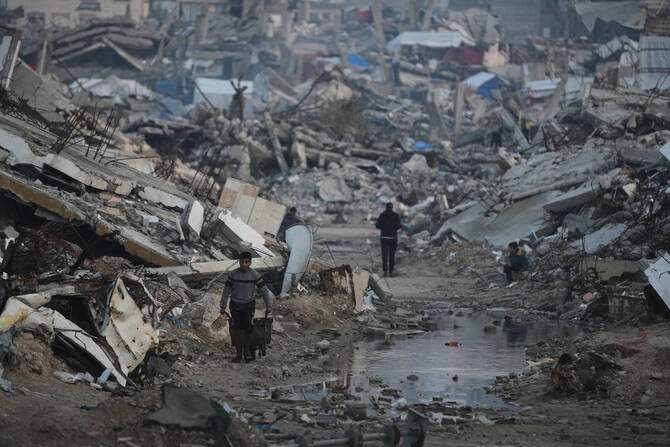LONDON: Israeli politicians since Thursday have openly called for the killing of journalists in Gaza, accusing several reporters of having prior knowledge of the Hamas attack on Oct. 7.
Some of the journalists are believed to be in danger after Israeli media shared their names and photos on X. They include a freelance photojournalist and four other reporters working for Reuters, the Associated Press, The New York Times and CNN.
The threats toward Palestinian journalists came following a report by HonestReporting, which monitors media outlets for critical coverage of Israel. The NGO posted an undated photo of a photojournalist with a Hamas leader and, in an accompanying article, questioned the former’s integrity as well as that of the four reporters.
However, when the group was asked if the photojournalists in question were part of Hamas’ plan, HonestReporting admitted that there was no evidence to support that claim, according to The Independent.
Israeli Communications Minister Shlomo Karhi told the four news outlets in a letter he posted on X (formerly Twitter) that journalists who captured the aftermath of Hamas’ attack, which killed about 1,400 Israelis, were “participants in this horrifying event.”
The tagged outlets, which are some of the world’s biggest news organizations, categorically denied the accusation, and The New York Times described it as “outrageous,” saying it endangered reporters in both Israel and Gaza.
In a press statement on Thursday, Reuters denied it had an embedded photojournalist with Hamas, adding that it acquired photos from “two Gaza-based freelance photographers who were at the border on the morning of Oct. 7,” but had no previous association with either.
Danny Danon, former Israeli ambassador to the UN, pledged to “hunt them down (the journalists) together with the terrorists.”
Several press freedom watchdogs and human rights organizations condemned the actions by Israeli officials.
On Friday, Reporters Without Borders denounced the calls by Israeli politicians to target journalists in Gaza, warning that the accusations against the five reporters were based on “unsubstantiated conjecture.”
As of Nov. 10, in what The Independent described as “the deadliest year for journalists” in three decades, at least 35 Palestinian reporters and media workers have been killed in Gaza within one month.
Amid Israel’s retaliatory assault on the besieged enclave, which so far killed more than 11,000 Palestinians, journalists covering developments in Gaza have been killed or subjected to cyberattacks, arrest and violent threats.
Media bureaus and residential blocks in Gaza have also been destroyed by Israeli airstrikes.
Press freedom watchdogs have warned of a disinformation campaign targeting journalists in Gaza, directly jeopardizing their lives, safety and freedom.
















